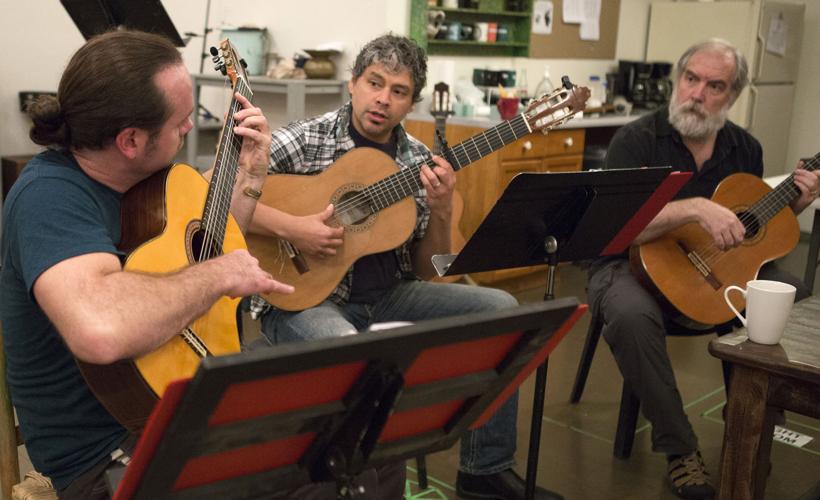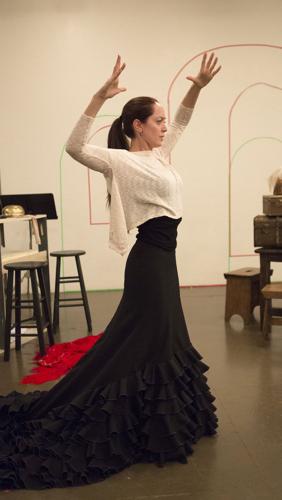David Bennett must love near-impossible tasks.
What else would explain his decision to cast Arizona Theatre Company’s production of “Man of La Mancha” with artists required to play and dance flamenco,sing and act.
“The casting was extremely difficult,” Bennett, who directs the musical, says. “We have performers from Seattle, Miami, Santa Fe, and one from Spain who speaks no English.”
His approach to the musical is much like the original 1964 Broadway production: minimalist.
“It’s intimately scaled,” he says. “Minimal costumes and props.”
But that original production did not attempt to have the actors be the orchestra, the hoofers, and the singers
“It makes the storytelling more vital,” he says. “It’s just people telling a story, communicating with people.”
“Man of La Mancha” is loosely — very loosely — based on Miguel de Cervantes’ 17th-century tale “Don Quixote.” It’s set in a prison during the Spanish Inquisition, and Cervantes is there, defending himself in a mock trial. Seems his fellow inmates have accused him of being “a bad poet, an idealist and an honest man.”
His defense is acting out the story of Don Quixote, who loses his grip on reality and decides to set out on a quest laid out in the musical’s best-known song, “Impossible Dream:” “To right the unrightable wrong/ To love pure and chaste from afar/ To try when your arms are too weary/ To reach the unreachable star.”
“The story is both timeless and timely,” says Bennett. “It’s about people living in an oppressive regime. They have been put down and they don’t know how to respond except with fear. Then this man comes in and tells them stories and it changes them. They find hope.”
Stories are essential, especially in dire times, he says. They can do what Quixote’s tales did for the inmates.
“Stories people experience together reconnects us to our fellow humans and our own humanity,” he says. “It allows us to find the courage to hope within ourselves.”





